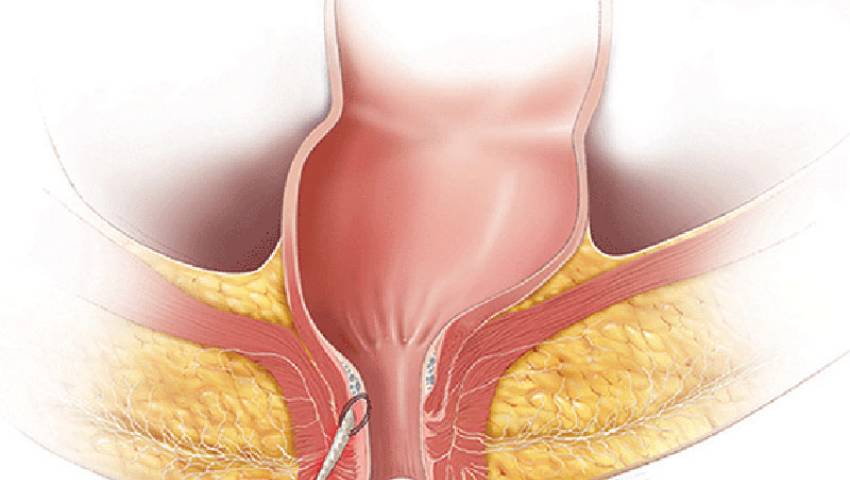
- 30/06/2023
- Dr. Samrat Jankar
- 0 Comments
- Blog
Is surgery a must for Fistula?
Fistula is a medical condition characterized by an abnormal connection between two organs or tissues within the body. It normally occurs in the gastrointestinal tract, urinary system, and reproductive organs. Fistulas can be debilitating, causing discomfort, pain, and complications. When diagnosed with a fistula, one of the primary concerns patients may have is whether surgery is the only possible option for treatment. In this blog, we will delve into the topic and explore alternative techniques for managing fistulas, concerning when surgery may be necessary and when it can be avoided.
What is Fistula?
A fistula is an abnormal passage that forms between two organs, allowing the flow of fluids or waste material. These passages can develop due to different reasons, including infections, inflammatory bowel disease, trauma, or complications arising from surgery. Fistulas can occur in different parts of the body, such as the rectum, bladder, vagina, or even between the intestines.
Traditional Surgical Approach:
For many years, surgery has been the go-to treatment option for fistulas such as fistulotomy, seton placement, or more extensive procedures like fistula flap repair or colostomy. The primary goal of surgery is to close the abnormal passage, allowing the affected organs or vessels to function properly. Surgical procedures for fistula repair can range from simple, minimally invasive techniques to complex open surgeries, depending on the size, location, and severity of the fistula. While surgery can be effective, it is not without risks, such as infection, bleeding, and the need for an extended recovery period.
Non-Surgical Approaches:
While surgery is often considered the primary treatment for fistulas, it’s important to note that not all cases require invasive procedures. Non-surgical approaches may be attempted in certain situations, depending on the type and severity of the fistula. These non-surgical treatment options include:
- Medications: Antibiotics or immunosuppressive drugs may be prescribed to control infection, reduce inflammation, and promote healing, especially in cases of anal fistulas or certain urinary tract fistulas.
- Seton Placement: A seton, a type of surgical thread, can be inserted into the fistula tract to help promote drainage, prevent abscess appearance, and help in healing. This technique is commonly used for complex or high-risk fistulas, such as those associated with Crohn’s disease.
- Fistula Plugs: In some cases, a fistula plug made from biocompatible material can be inserted into the abnormal passage to promote healing and closure. This method is often used for simple or low-complexity fistulas, and success rates vary relying on the respective case.
- Fistulotomy: In some cases, a minimally invasive procedure called a fistulotomy may be performed. It involves making a small incision in the fistula tract to drain any abscesses and allow the tract to heal naturally.
- Endoscopic Interventions: In certain types of fistulas, such as gastrointestinal or urinary fistulas, endoscopic techniques can be employed to close or redirect the abnormal passage using advanced tools and techniques. This process can be less invasive than traditional surgery, leading to shorter recovery times.
When Surgery Is Necessary:
While non-surgical techniques can be effective in certain cases, surgery is often required for a permanent resolution of many fistulas. Surgery may be necessary in the following scenarios:
- Complex Fistulas: Fistulas that are deep, have multiple tracts, or are associated with underlying conditions like inflammatory bowel disease often require surgical intervention. Procedures such as fistula repair, advancement flaps, or tissue grafts may be performed to close the abnormal passageway and promote healing.
- Recurrent Fistulas: If a fistula recurs despite non-surgical treatment attempts, surgery might be required to address the underlying cause and provide a more permanent solution.
- Complications and Health Risks: Some fistulas can lead to severe complications, such as ongoing infections, abscess formation, or the risk of sepsis. In such cases, surgery becomes necessary to prevent further health risks.
- Failure of Non-Surgical Approaches: In cases where non-surgical treatments have been attempted without success, surgery may be the next step to consider. This could include medicines, wound care, or lifestyle changes aimed at managing symptoms and promoting healing.
Determining the most appropriate treatment option for a fistula requires careful evaluation and consultation with the best Fistula Specialist in Pune, Maharashtra, Dr. Samrat Jankar. They will consider factors such as the type, location, severity, and underlying cause of the fistula, as well as the overall health of the patient, before recommending the best course of action.
Conclusion:
While surgery has long been the primary treatment for fistulas, it is not always the only option. Non-surgical techniques, such as medications, fistula plugs, setons, and endoscopic interventions, have shown promise in certain cases, providing possible alternatives to invasive procedures. However, it is important to note that every fistula is unique, and the appropriate treatment strategy may vary from one individual to another. Consulting with Dr. Samrat Jankar, Fistula Specialist in Pune, Maharashtra is crucial to determine the most suitable treatment plan, ensuring the best possible outcome for each patient’s specific situation.
